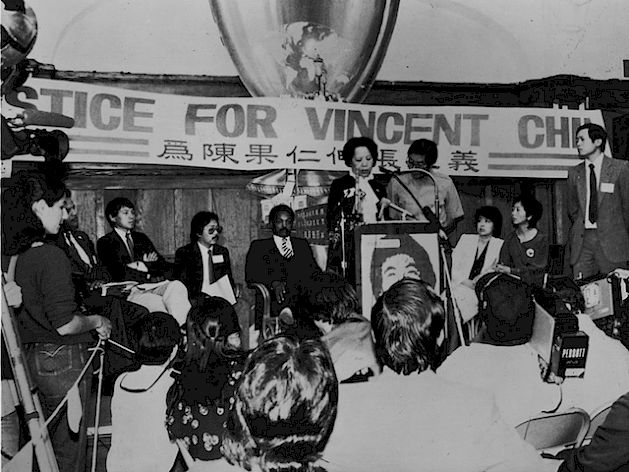What We're Reading This Week

Credit: Mark Tseng-Putterman, The Margins, https://aaww.org/vincent-chin-the-kind-of-men/
Colin Bernard, University of Wisconsin-Madison, Wisconsin
James Grossman, “The diffusion of knowledge: Toward a wider definition of scholarship,” Perspectives on History
This article is a reflection by James Grossman about what diffusion of knowledge means in the contemporary historical profession and how it needs to be rethought.
David Broder, “The Italian left’s long divorce from the working class,” Jacobin
This article by David Broder is about the transformation of the Italian Communist Party in the mid-1970s and the impact this had on Western Europe’s largest communist party.
Justin H. Vassallo, “The Americans who embraced Mussolini,” Boston review: A political and literary forum
This is a review essay of Katy Hull’s new book The Machine Has a Soul about the reception of Fascist Italy in the United States of America.
Michael Brenes and Daniel Steinmetz-Jenkins, “Legacies of Cold War liberalism,” Dissent
This article by Brenes and Steinmetz-Jenkins is about the way Cold War liberalism continues to shape US politics.
Kristie Flannery, Institute for the Humanities and Social Sciences, Australian Catholic University, Melbourne
Gillian Brockell, “The long, ugly history of anti-Asian racism and violence in the U.S.,” Washington Post
Last month in Atlanta, a gunman murdered eight people, including six Asian women, in a shooting-spree targeting spas. Historians have explained that this violence has deep roots in United States of America's long history of racism and misogyny against Asian women.
Gillian Brockell's article in the Washington Post traces the long history of anti-Asian racism and violence in the USA.
Pawan Dhingra, “Racism is behind anti-Asian American violence, even when it’s not a hate crime,” The Conversation
In The Conversation, Pawan Dhingra examines persistent racist discourses about the Asian diaspora in the USA that have been amplified during the pandemic, leading to a rise in violence and hate-crimes.
Japanese American Relocation Digital Archive (JARDA), Calisphere, Unviersity of California
Asian Americans and Seattle's Civil Rights History, Civil Rights and Labor History Consortium, University of Washington
There are rich, digital archives for studying and teaching the history of Asian diasporas in the Americas and the racist violence that generations of immigrants and their descendants have experienced. These include the University of California's Japanese American Relocation Digital Archive (JARDA). The Seattle Civil Rights and Labor History Project hosts short documentary films and oral histories that explore local Asian Americans’ historical struggles for civil rights and justice.
Chris Szabla, Cornell University
Karunya C Banerjee, “Swearing like sailors: What the profanities of lascars can teach today’s divided world,” Scroll.in
The “salty, colourful vocabulary” of lascars - sailors from across Asia who served on European ships, primarily in the Indian Ocean, for centuries - helped to bridge cultural divides. This article moves beyond a utilitarian understanding of the lascar tongue as a colonial “language of command” or expedient pidgin to illustrate its broader social meaning and uses, including protest.
Arjun Appadurai, “Beyond Domination: the future and past of decolonization,” The Nation
At a time when “decoloniality” has emerged as an increasingly prevalent concept, thinkers are interrogating what a meaningful decolonization would look like, beyond the formal independence of nation-states that has ultimately been circumscribed by transnational forces and ideas. Yet, as Arjun Appadurai’s review shows, they disagree about the extent to which a model based on “indigenous epistemology” or a new, peripheral, dialectical paradigm of modernity would help overcome decolonization's disappointments.
Jeffrey Wasserstrom, “The Underground Activists Who Fought for Freedom Across Asia,” The New Republic
In this review of Underground Asia, Tim Harper's new book on Asian anticolonial activists, we see how movements against Western empires cooperated with one another and exploited the different legal jurisdictions into which Asia was divided.